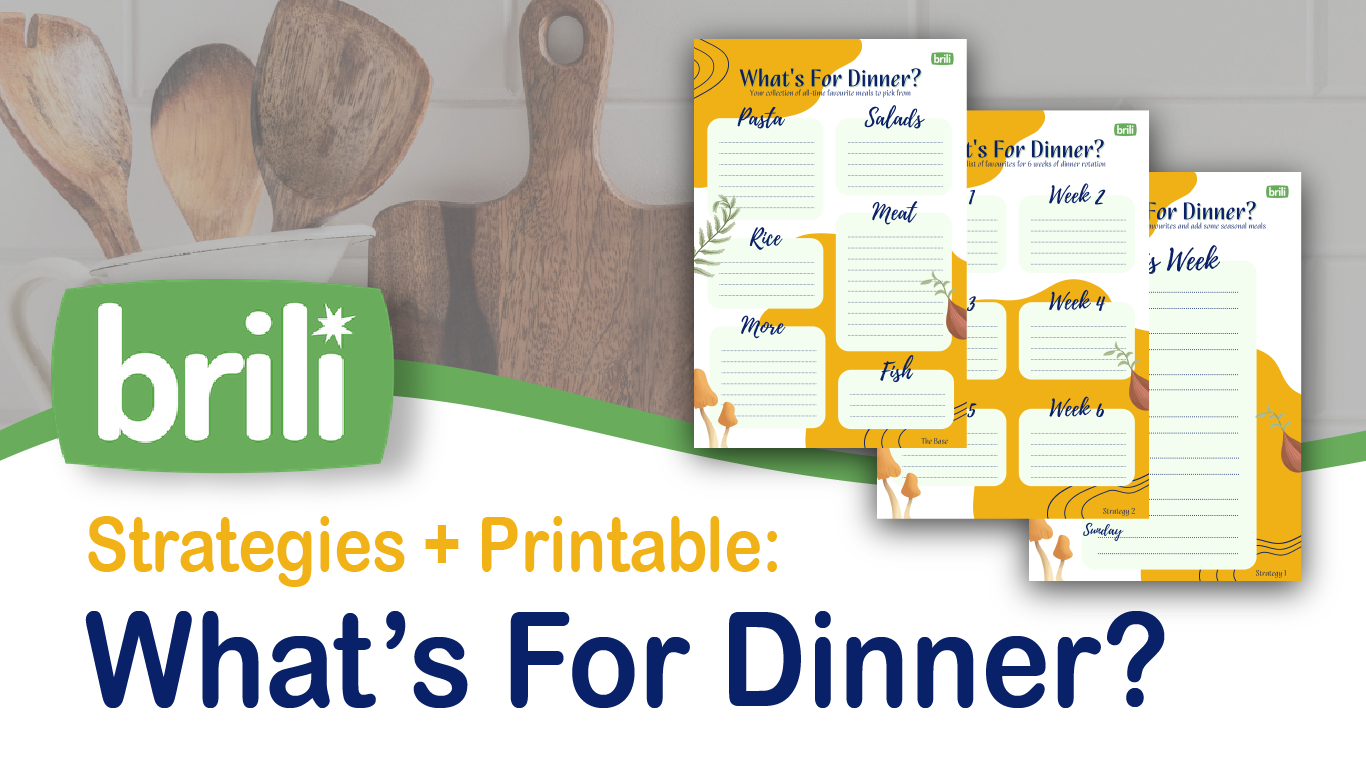"What's for dinner?" might be one of the most dreaded questions in your day, asked by your hungry and tired self or loved ones in your household. As last minute decisions tend to be stressful and expensive, here are two ADHD friendly strategies to plan your meals and still not get bored by the ever same dishes.
The Base: Make a list of all your favorite meals, try to come up with 30+ recipes. These can be dishes that everyone in your household likes or can be varied easily, meals which you can throw together even after a long day, dishes which excite you because they remind you of your childhood or a great trip. Think of categories like vegetarian and meaty dishes, pasta, salads, soups etc.
Strategy 1: Every week, pick 3-5 of them and put up the week's menu somewhere visible. Depending on your lifestyle and personal situation, you might not want to or be able to cook 7 days a week. So if you plan 5 dinners from the list, then the remaining 2 days could be handled flexibly for going out or being invited, getting inspired by seasonal vegetable or eating upgraded leftovers. Add all needed ingredients to your weekly shopping list.
Strategy 2: From your list of favorite meals, create 6 weekly meal plans for rotation. Write them down and number them, so that you can pull them up every week, one after the other. You can even write down all the needed ingredients on these cards to have your weekly shopping list ready. To keep things interesting, better plan for less than 7 fixed dinners a week and leave room for seasonal dishes or outings with friends, collegues etc. That way, you have a good base for the week and can fill the remaining days in a more spontaneous way.
Both strategies have great benefits:
- Reduce the mental load: You only need to plan and do grocery shopping once a week and have everything ready for when you're hungry, tired or have a bad day.
- Save a lot of money: You buy only what you need and don't need to throw out all the salad and other great ingredients which you bought with the best intentions but never managed to cook or forgot in the back of your fridge.
- Save time: You spare yourself not only those hectic moments of wondering what's for dinner, but also those last minute trips to the supermarket. Having a repertoire of rotating recipes will also shorten the process of preparing the meal.
What are your favorite meals and go-to recipes?
Download Brili's "Whats For Dinner?" Printable here and never miss a meal again!
